Foreign Digital Nomads in Taiwan! Living Pros & Cons, Housing, Social Life , and More| Freelance Software Engineer Cédric Lignier Exclusive Interview
February 26, 2025
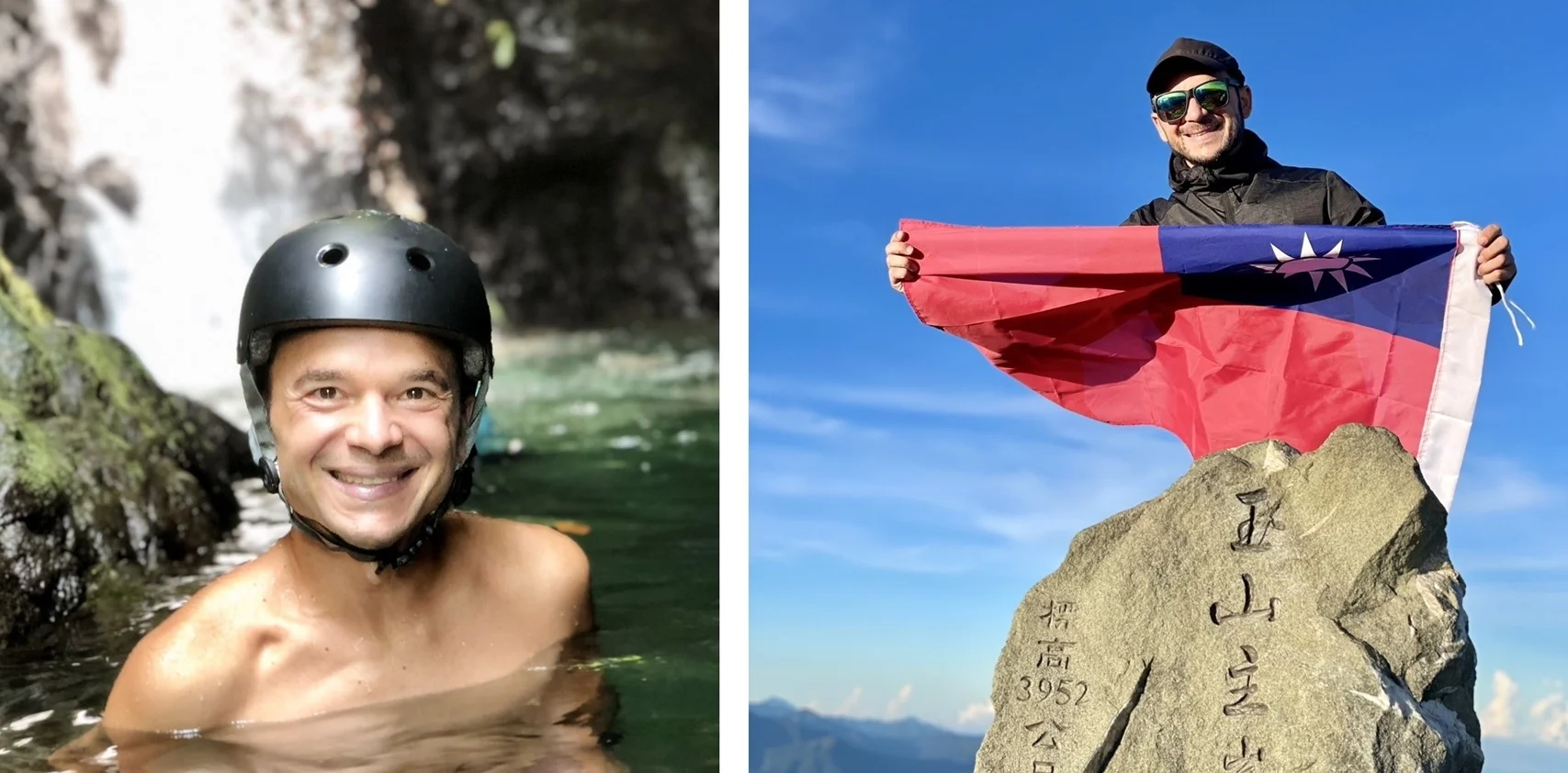
Photo by Cédric
In this interview, French software engineer Cédric, who has lived in Taiwan for approximately three years, shares insights on:
1. The conveniences and challenges of living in Taiwan
2. Life planning for newcomers
3. How to make new friends
In 2018, Cédric reached his tenth year as a software engineer, working in Silicon Valley, USA. This was also the year he left his job and, along with his wife who also works in IT, embarked on a journey as digital nomads.
"At first,we planned to take a year off to travel and then come back to work. But after some research, we found that maybe we can try to travel for over one year," Cédric explains. His wife, who initially kept a full-time job while working remotely, later decided to follow his example. Inspired by his flexible lifestyle and income mostly from investing, she also quit her job and started her new life.
Their journey began from Montreal, Canada (since his wife still needed to handle U.S. work matters and couldn’t leave the Americas due to time zones), and led them through Mexico, Spain, Portugal, France, and finally Asia, where they explored Thailand, Vietnam, and Bali, Indonesia. In 2020, when the pandemic disrupted their travel plans, they decided to change their original plan of visiting Japan and came to Taiwan.
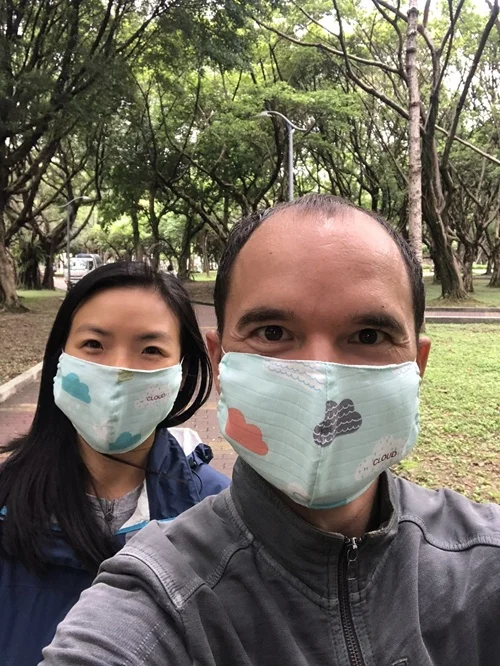
Settling in Taiwan: Embracing Diverse Outdoor Activities and the Convenience of Taipei’s MRT
Cédric shares that he and his wife initially came to Taiwan by chance, given Taiwan’s highly acclaimed pandemic response at the time. So why did they choose to stay, obtain Taiwan Employment Gold Card for permanent residency, and continue to consider Taiwan a “second home,” even as international travel has become easier? The reasons primarily include:
1. Natural Environment and Variety of Outdoor Activities
Compared to large urban centers, Cédric and his wife prefer peaceful, natural surroundings. During their time in Taiwan, they explored many locations, perhaps even more than some locals, including Alishan, Kenting, Taitung, Green Island, Penghu, and Xiaoliuqiu. Cédric is especially drawn to Taiwan’s landscapes and cultural richness. He has also enjoyed outdoor activities, such as river tracing, climbing Yushan, and cycling from Hualien to Taitung.
The ability to easily access various natural settings is one of the most attractive aspects of living in Taiwan for him.
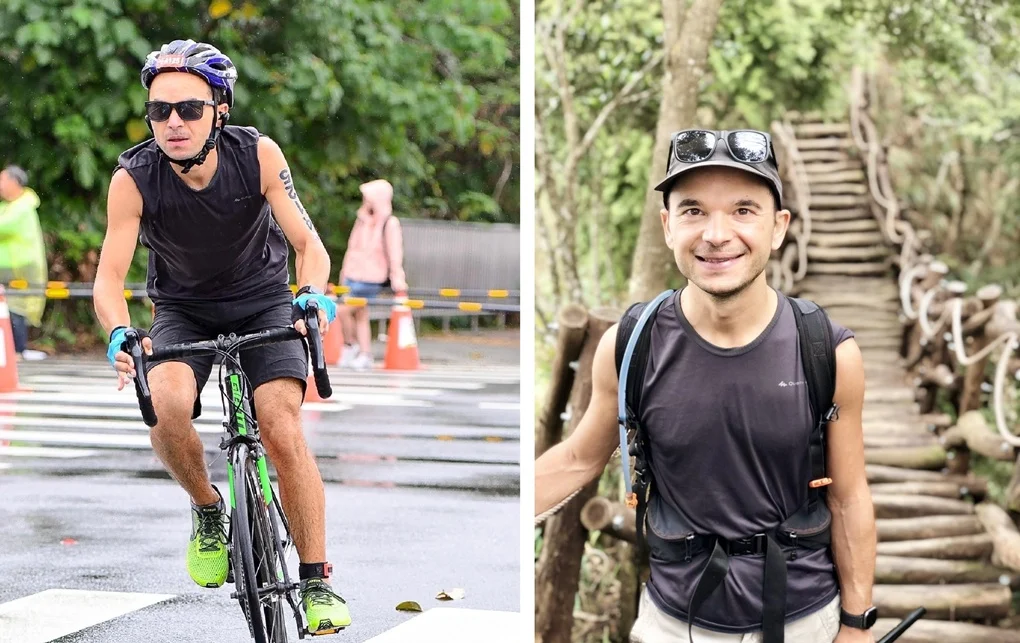
2. Safety
After spending time in North and South America and Europe, Cédric found the safety in Asia, especially Taiwan, remarkably reassuring.
“By safety I mean people don’t have to worry if they misplace an item. For example,I left my GoPro on a YouBike in Kaohsiung, only realizing it was missing once I was on the train back to Taipei. Fortunately, when I contacted lost and found, they told me someone had already turned it in. On our next visit to Kaohsiung, I was able to retrieve it,” he explains.
In France, however, it’s easy to lose items to pickpockets, even if you keep them with you. He also mentions that in some areas of the U.S., people are mindful of firearm-related safety; while traveling in Mexico, they had to stay vigilant due to the common risk of carjacking by gangs.
Aside from these points, Cédric also praises the signage and cleanliness of Taipei’s public transportation. Compared to Thailand or Vietnam, he finds Taipei’s MRT more easier to understand for foreigners, allowing his parents,who even don’t speak English,navigate the city with ease by following the color coded line and stop numbers. Additionally, the cleanliness of the MRT and buses far surpasses that of the U.S. and France.
Inconveniences: Banking and Language Barriers in Smaller Cities
Of course, living in a foreign culture with a different language isn’t without challenges. For example, Cédric points out that, in Taiwan, many banking matters still require in-person visits, whereas most banking services abroad can be handled online.
Opening a bank account in Taiwan requires an online reservation, followed by nearly two to three hours at the bank to complete all the procedures. If you need to update information, the entire process has to be repeated. “That is painful. We used to do everything online in California or in the US or even in Europe,” he remarks.
While English works well in Taipei, other cities can pose challenges if one doesn’t speak Mandarin. When faced with language barriers, he often relies on gestures and Google Translate.
He admits that although he has learned a bit of Mandarin, the convenience of using English in Taipei has kept him from fully committing to learning. His most-used Mandarin phrase? In his accent, he replies in Chinese:bubble tea, less ice, no sugar.
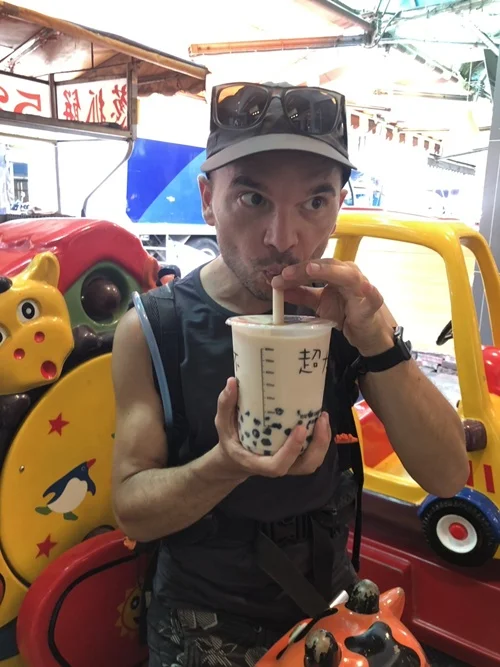
Travel-Friendly Short-Term Rentals and Building Friendships Through Shared Interests
After weighing the conveniences and inconveniences, Cédric is still enamored with Taiwan. Not only did he settle down, but he also became involved with Crossroads, a non-profit organization working with the Taitung County Government to promote the digital nomad platform TTnomads. Through various cultural activities, they attract digital nomads worldwide to explore Taiwan.
As an experienced expat in Taiwan, he also shares some practical tips for newcomers.
[Housing]
Cédric suggests evaluating one’s own needs when choosing accommodations. For him and his wife, a kitchen is essential since they enjoy cooking. They prefer flexible short-term rentals to explore different cities without the constraints of a one-year lease, typically finding housing on Airbnb and staying at least a month in each location.
For shorter trips, they generally use Booking.com.
[Mobile Plans]
Since they only use their phones when needed (such as for maps), they opted for prepaid SIM cards with around 2GB of data rather than pricier unlimited plans.“They are easy to get and can get reloaded at 7-11 very easily as well,”he added.
[Transportation Card]
A must-have for life in Taipei is an EasyCard, which Cédric uses to ride the MRT and often to rent Ubike. Speaking of the EasyCard, he laughs, “I thought it’d be a plain card, but there are all kinds of designs to choose from in Taiwan.”
If you plan to explore Taipei and its surroundings extensively by using public transportation, you can also buy a T-pass.For just 1,200 NTD per month, you can enjoy unlimited rides on the metro and buses.
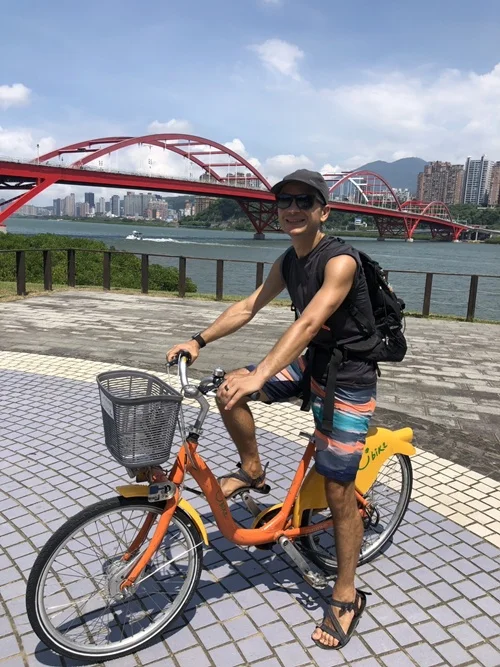
[Making Friends]
In a new place, how does one make friends? Cédric shares that he and his wife started by using Meetup, where people organize various events. They joined hiking groups, allowing them to meet like-minded friends for regular outings. Later, they also connected with others through the events holding by Taiwan Employment Gold Card Office.
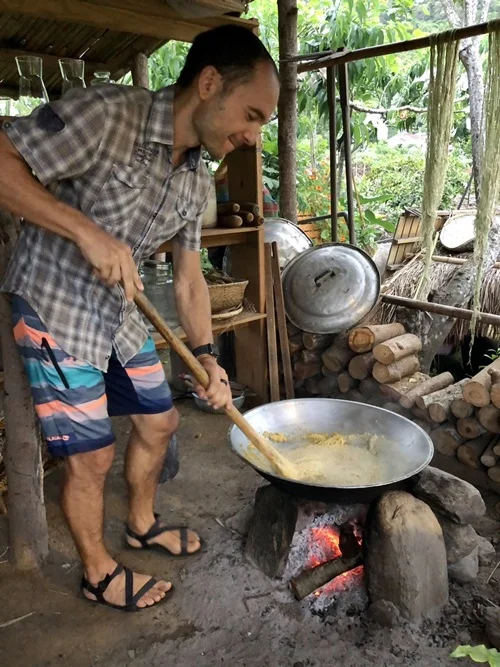
Having lived in Taiwan for several years, they now look forward to traveling more internationally. After a recent trip to South Korea and now visiting family in California, Cédric and his wife plan to spend one month each year in the U.S. and France with family, while returning to Taipei for two to three months every spring and traveling to other countries during the remaining months.
“I think Taiwan is a beautiful place which is underrated,and it has so much potential.” Cédric exclaims. He notes that many people are unaware of Taiwan, or know it mainly due to political issues with China, rather than its beauty. He’s keen to share Taiwan’s charms on his website, Nomad Numbers, and looks forward to returning after their U.S. and France visits!
--
Follow the Digital Nomad Facebook fan page and stay updated with more recent articles on Instagram (@digital.nomad.press)!
This content is protected by copyright. Please respect the author's work and do not copy or distribute without permission.
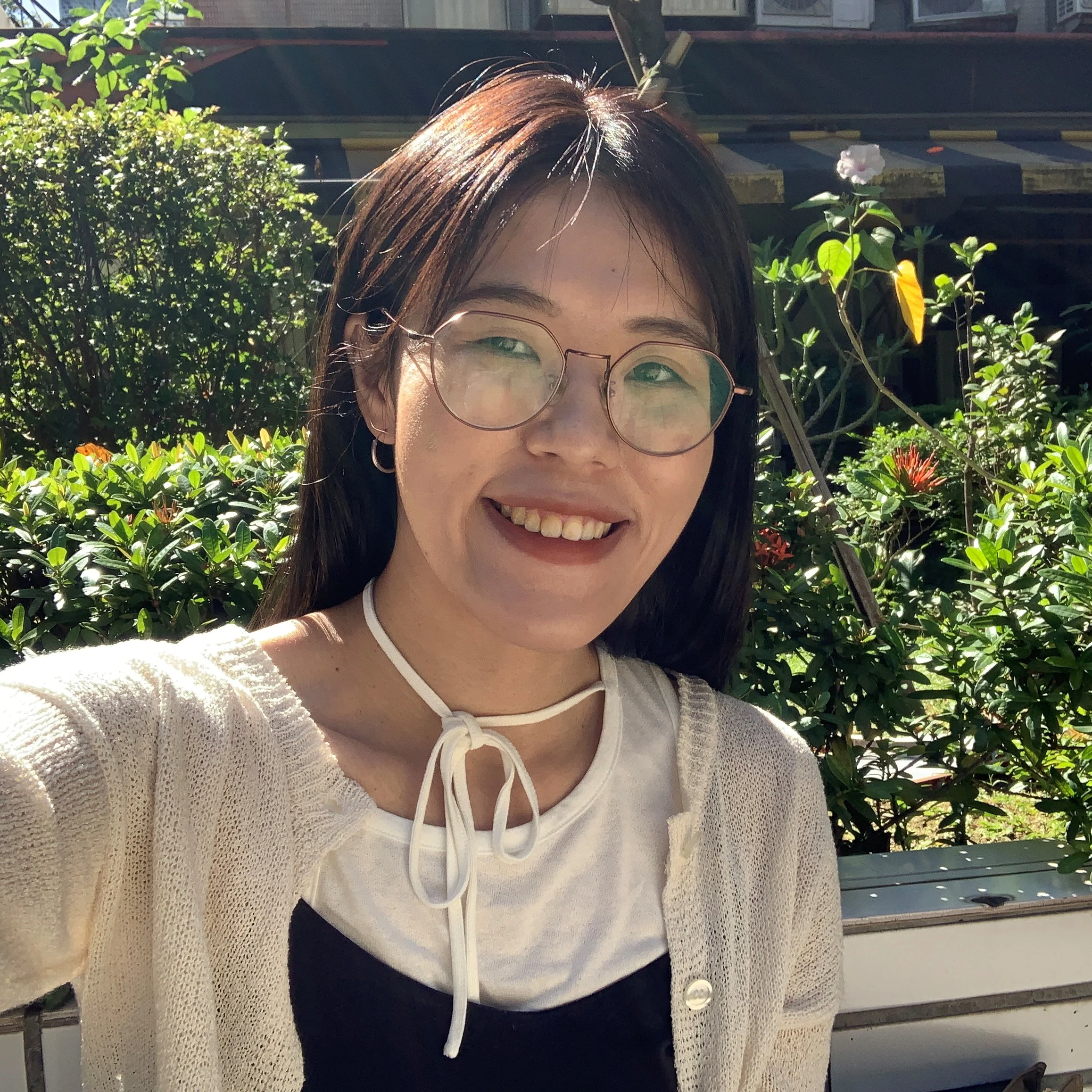
Editor Group/鐘敏瑜
Minyu is the editor of 'Digital Nomad' and simultaneously manages the content of 'Darencademy' and 'ProjectUp.' She worked as a reporter for the magazine 'MANAGER Today' and as an editor for the lifestyle channel of 'Storm Media'. Also, she had one year of experience in full-time freelancing. Through this platform, she looks forward to sharing essential knowledge and fascinating stories about the nomadic lifestyle.

